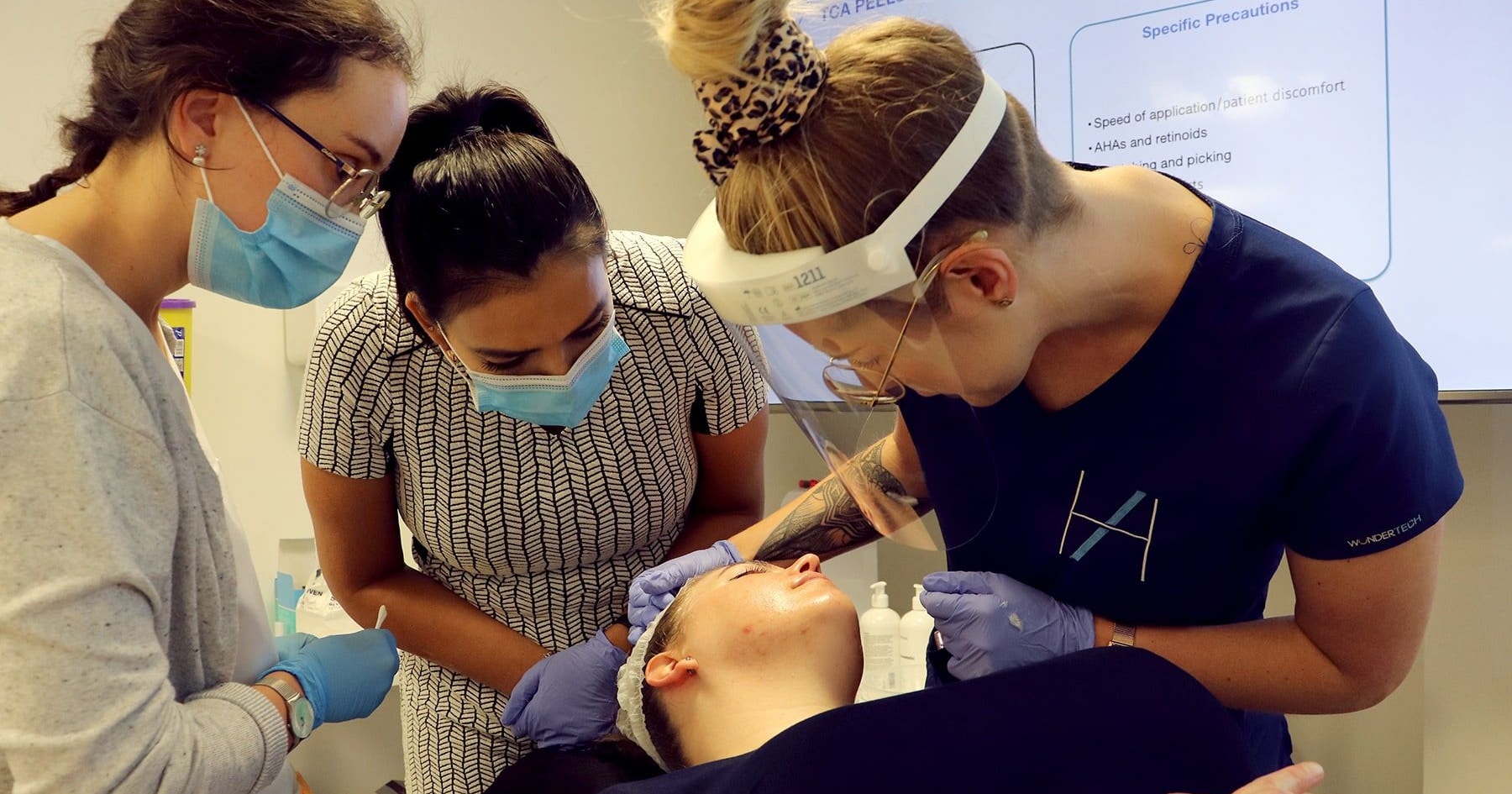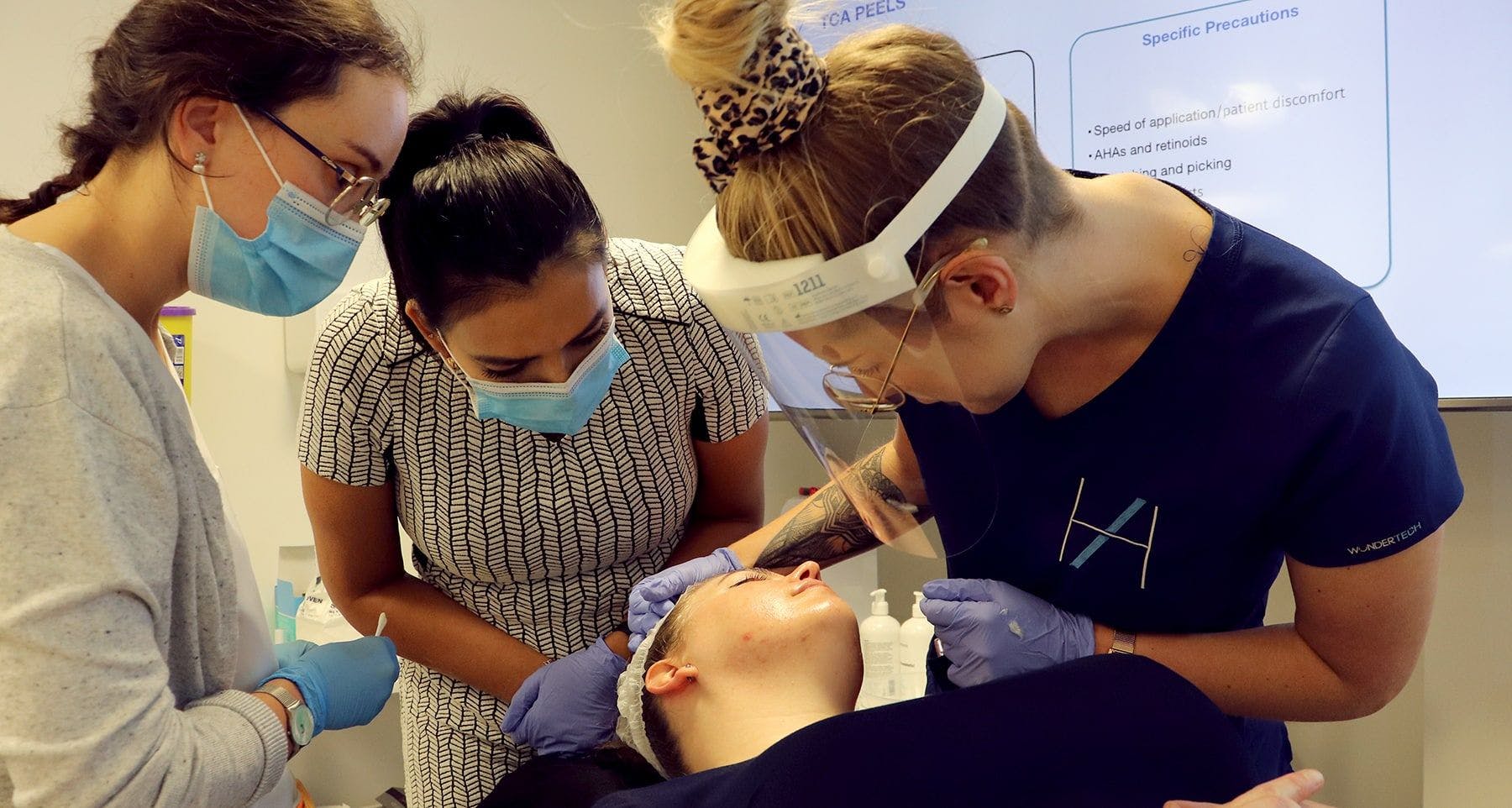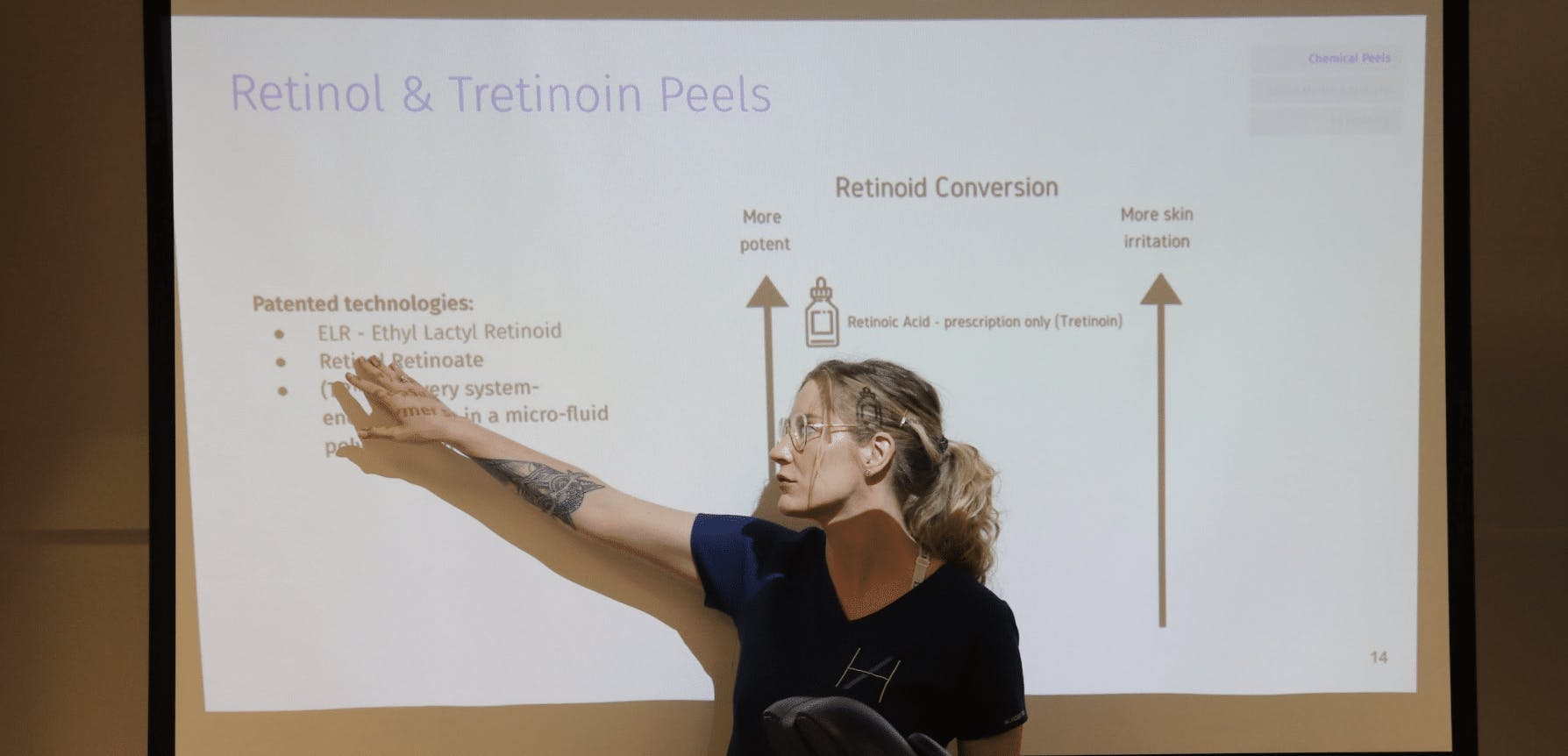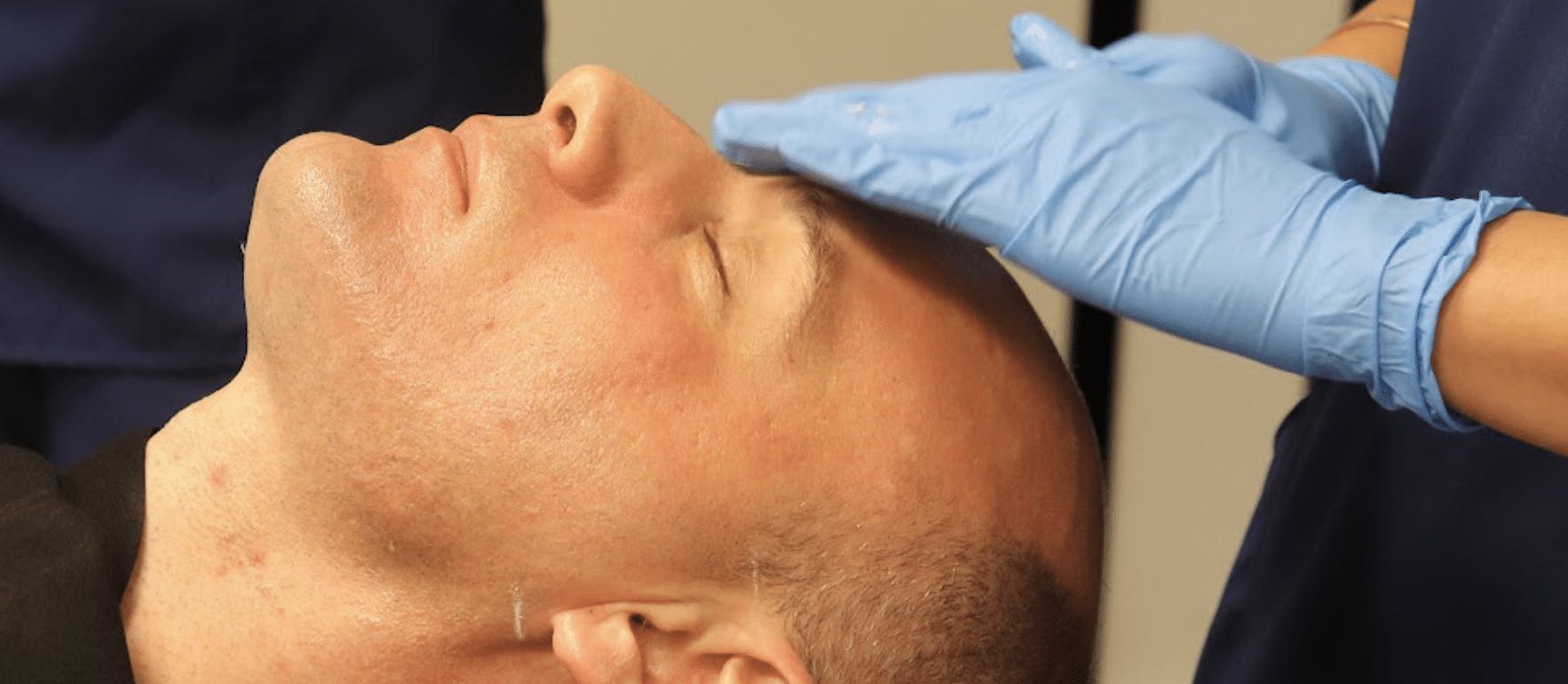Should you call yourself a Cosmetic Dermatologist?

Completed your cosmetic dermatology course and now wondering if you’re a cosmetic dermatologist? You’re not alone!
Our faculty are frequently asked if this is the correct terminology. Graduates often ask if they should tell patients they’re a cosmetic dermatologist, too.

WHAT IS A COSMETIC DERMATOLOGIST?
There is no real definition of “cosmetic dermatologist”. Unlike actual dermatology, cosmetic dermatology is not a regulated nor a particularly recognised profession in the UK.
Generally it’s used to refer to an aesthetics practitioner with a deep understanding of the skin, particularly skin ageing. This usually includes being trained in performing advanced skin treatments such as chemical peels, microneedling and injectable skin boosters.
It’s, essentially, a marketing term – a phrase that makes something easier for the consumer to understand, and potentially more desirable. It is not, however, entirely accurate.
For example, there is no such thing as “medical grade skincare”. There is prescription medicine, and there is skincare. Some medications are used for the skin, but are still medicine. This doesn’t stop the terminology from being widely used, including by skincare companies themselves.
WHAT IS A DERMATOLOGIST?
A dermatologist is a medical doctor who specialises in conditions which affect the skin, hair and nails.
They are qualified in dermatology – a very different speciality to “cosmetic dermatology”.
In the UK, to become a dermatologist, medical graduates need to complete the following, extensive training pathway...
- Foundation training in programme (2 years)
- Core training in internal medicine + Membership of the Royal College of Physicians (MRCP) (2-3 years), or in acute medicine + MRCP (3 years), or 3 years of pediatrics + 1 year of internal medicine + Membership of the Royal College of Paediatrics and Child Health (MRCPCH)
- Higher specialty training in dermatology + Speciality Certificate Examination in dermatology (SCE derm) (4 years).
At the end of this, a Certificate of Completion of Training (CCT) in Dermatology is awarded. You are then, officially, a dermatologist.

ARE YOU A COSMETIC DERMATOLOGIST ONCE YOU SUCCESSFULLY COMPLETE YOUR COSMETIC DERMATOLOGY COURSE?
No. Whilst it’s easy to believe this to be the case – and it’s a much debated technicality – we believe this is akin to passing your driving test and telling people you’re a racing driver.
Yes, successfully completing a cosmetic dermatology course means you have specialist knowledge in some areas of dermatology. This is not comparable to the years of study and knowledge it requires to become a full dermatologist, though.
SHOULD YOU CALL YOURSELF A COSMETIC DERMATOLOGIST WHEN DEALING WITH PATIENTS?
This is entirely down to your personal ethics. We do not believe that those who have trained in cosmetic dermatology should hold themselves up as cosmetic dermatologists to the public.
The reason for this is that it’s extremely confusing for patients who are unlikely to know the difference between a “cosmetic dermatologist” and a “dermatologist”.
To avoid this confusion, we recommend avoiding calling yourself a cosmetic dermatologist. Instead, choose to reference your skin expertise in other, more beneficial ways.

ALTERNATIVE TITLES TO COSMETIC DERMATOLOGIST
Instead of “cosmetic dermatologist”, we prefer titles that convey expertise in the area your patients are looking for help with. This could be “aesthetician” or any of the following:
- Skin practitioner
- Skin specialist
- Skin expert (once you’re more experienced)
Alternatively, focus on the area you enjoy and are successful in treating. This is a particularly advisable option if wish to make a name for yourself in this specialism. For example:
- Pigmentation specialist
- Acne specialist
- Skin ageing specialist
You can tag this onto the end of your regular title, too – for instance, “cosmetic doctor and skin specialist”, “aesthetic nurse and pigmentation specialist” or “cosmetic dentist and skin ageing specialist”.
BENEFITS OF USING A SKIN PRACTITIONER-BASED JOB TITLE
Defining what you do in this way will also help those of you with websites. This is because our examples include key words relating to the skin treatments you offer.
Using these will help you to rank higher in search engines, so that people looking for skin services can find you more easily.
In the USA it’s common for dermatologists to administer botox and fillers. However, in the UK, people who are searching for dermatologists are unlikely to be looking for the type of treatments generally offered by aesthetics practioners.
We hope you found our thoughts on this matter helpful. Do you agree? Disagree? Let us know in the comments on our post over on the Harley Academy Instagram account.
All information correct at the time of publication
Download our full prospectus
Browse all our injectables, dermal fillers and cosmetic dermatology courses in one document
By submitting this form, you agree to receive marketing about our products, events, promotions and exclusive content. Consent is not a condition of purchase, and no purchase is necessary. Message frequency varies. View our Privacy Policy and Terms & Conditions
Attend our FREE open evening
If you're not sure which course is right for you, let us help
Join us online or in-person at our free open evening to learn more
Our Partners













STAY INFORMED
Sign up to receive industry news, careers advice, special offers and information on Harley Academy courses and services

